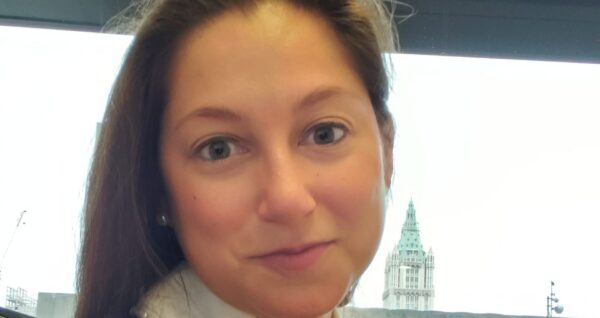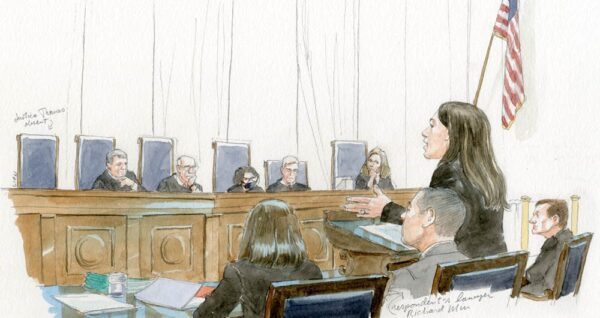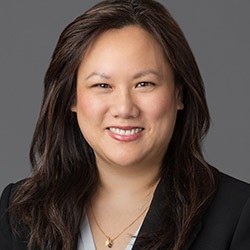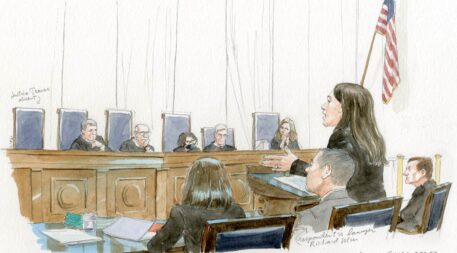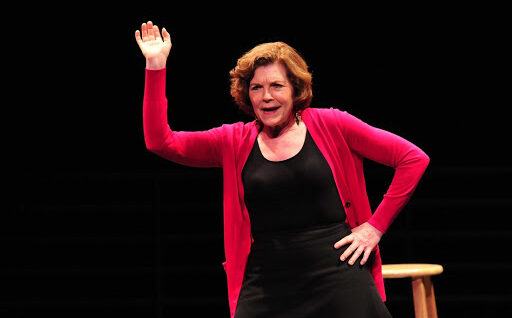A spotlight on Sanctuary Pro Bono Partner Morton Bast and her amazing work on Sanctuary’s Family Law Project.
Sanctuary for Families’ Pro Bono Project has the honor of working with hundreds of extremely dedicated and expert pro bono attorneys per year. As part of our new Pro Bono Spotlight, we’ll be highlighting some of the great work done by Sanctuary pro bono attorneys!
As the pandemic worsened in 2020, it quickly became clear that the most vulnerable New Yorkers would disproportionately suffer the consequences of both the health crisis and the corresponding shutdown of the City. Non-profit legal and social services agencies immediately pivoted to triage mode as they worked double-time to meet the growing needs of the communities they served.
Recognizing the urgent need to provide additional support to these communities —and well-positioned to jump into the fray given its long-standing commitment to pro bono work—Cleary Gottlieb created the Cleary Gottlieb Fellowship Program in 2020. This groundbreaking new initiative places Cleary associates at legal services organizations for one year, providing critically needed legal work to underserved communities while enabling Cleary Fellows to continue expanding their skill sets and pursue their specific interests. The first cohort of Fellows dispersed across New York City, landing in organizations such as Brooklyn Defender Services, Everytown for Gun Safety, the International Refugee Assistance Project, New York Lawyers for the Public Interest, the Vera Institute of Justice, and so many more.
Sanctuary for Families was the lucky recipient of a Cleary Fellow and Columbia Law graduate Morton Bast. As a Cleary associate, Morton had worked pro bono on an asylum case with Sanctuary and participated several times in Sanctuary’s Queens Trafficking Intervention Project, providing comprehensive immigration screenings and consultations to defendants in the Queens Human Trafficking Intervention Court. “Every time it was Cleary’s turn to participate, really, I signed up because I found the clinic so impactful,” Morton explains. “So when the Fellowship opportunity was created, Sanctuary was the first organization that came to mind. Although I’d really enjoyed these immigration cases, I ended up signing up for Sanctuary’s Family Law Project because it would allow me to hone my litigation skills as well.”
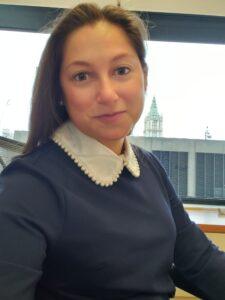
Morton’s arrival could not have come at a better time. Sanctuary’s Director of the Bronx and Manhattan Legal Project & Policy, Jennifer Friedman, recalls, “Morton came to us early in the pandemic, at a time where our entire office had to pivot to being online and the physical courts had just closed, so the only way for litigants to file petitions was online. We were really in an ‘all hands on deck’ situation, and Morton was hugely valuable and integral to our work during this time.” Morton was quickly tasked with conducting initial legal screenings and drafting petitions for the many survivors who had no other place to seek help once the courts physically closed and stopped providing pro se assistance to unrepresented litigants. Faced with unprecedented and urgent client situations, Morton also offered critical support in conducting research, drafting motions, and assisting pro se clients with safety planning and navigating the ever-changing landscape of the new virtual court system.
From Morton’s perspective, the experience was a crash course in direct client contact and the stark differences it poses to other types of legal work. “Most of the billable work I had been doing as a junior associate was not direct client contact – I spent most of my time working with people who are also doing their day jobs,” Morton says. “Whereas at Sanctuary, these are problems in people’s own lives that they can’t step away from at the end of the day, so it’s easier to become even more invested very quickly.”
When asked about the most gratifying aspect of this type of work, Morton pointed to the satisfaction of using her legal skills and background to help people solve real problems in their lives.
“Gender-based violence issues have always been of great interest to me, but I never really considered that they could be something I could use my legal skills for.” – Morton Bast
Morton approached each survivor interaction with compassion, patience, and a mindset of trauma-informed, client-centered advocacy. Jennifer recalls one client with whom Morton worked for close to an entire year, who was deeply traumatized by her experiences of domestic violence and, as a result, extremely anxious about testifying in court. Morton worked extensively with the client for hours at a time to prepare her for trial at her own pace. Jennifer explains, “One of the major challenges of this case was that the client was not able to share her experiences in the typical structure of a direct examination, i.e. broken up into pieces in response to the attorney’s questions; she really needed to get into the zone and just deliver her story all at once. So rather than trying to force that, Morton and our team reconstructed the direct examination to allow the client to be the most comfortable telling her story on her own terms.”
Through these experiences and more, Morton gradually became an attorney with highly specialized knowledge of Family Law, even taking two of her clients from Sanctuary back to Cleary to continue working on their cases pro bono after her Fellowship ended. Jennifer notes, ”We’re so grateful to Cleary for enabling this Fellowship. Now when we work with Morton as a pro bono, she is fully trained and can operate on a high level on really sophisticated cases and be familiar with our approach and philosophy.” From her perspective as a Fellow and now a pro bono attorney, Morton adds, “Working full-time at Sanctuary allowed me to see the symbiotic relationship between law firm pro bono work and the organization. I think when you’re working in a firm on pro bono matters, you worry, ‘Am I just doing this for myself, to make myself feel good?’ But I realized when I was at Sanctuary that the organization can’t work at the volume it works at without pro bonos, so it really is an important and mutually beneficial relationship.”
Cleary’s Director of Pro Bono Katherine Hughes provided her perspective on Morton’s work with Sanctuary. “Watching Morton grow as an attorney during her Cleary Fellowship rotation at Sanctuary for Families has been a tremendous highlight for me during these past two challenging years. She naturally has a sense of confidence and lightness that brings her clients comfort in what are arguably some of their darkest hours. However, the Fellowship experience at Sanctuary and her clients and mentors have clearly shaped her into a smarter, more resilient litigator. She speaks so highly of the experience and continues to represent several of her clients with equal measures of grace, intelligence, and patience. Cleary is so grateful for the ways the Fellowship has strengthened our relationship with Sanctuary and for all that Morton has brought back to the firm from it.”
We are so grateful to Cleary for enabling this opportunity to work with such a talented, kind, and skilled associate and to Morton for all of her efforts throughout the Fellowship. We look forward to continuing our relationships with Morton and Cleary well into the future!
